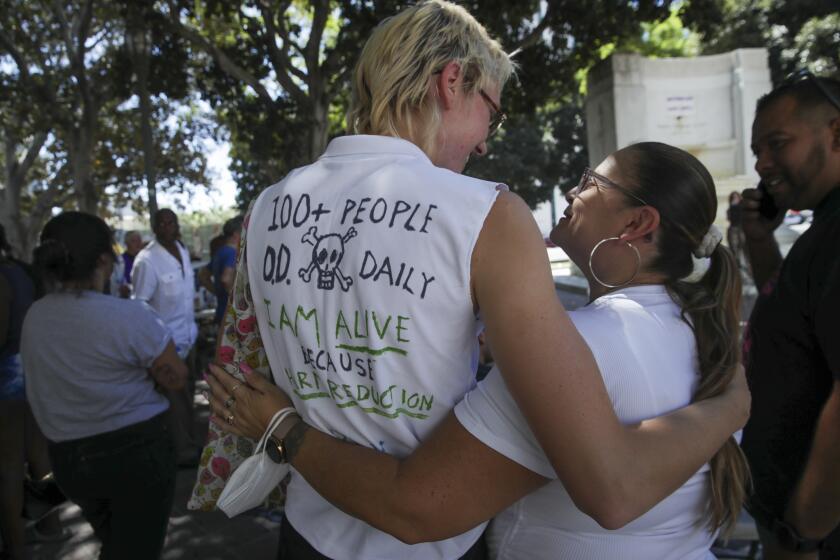O.C. Sheriff’s Reserve Files Questioned in 2002
An Orange County sheriff’s sergeant warned more than two years ago that documents may have been altered to support the appointments of 86 reserve deputies who are political allies and friends of the sheriff, according to a confidential memo.
The sergeant reported the perceived problems after reviewing the files and warned that Sheriff Michael S. Carona could be unwittingly put in the position of lying about appointment dates to the state commission that credentials police agencies.
The sergeant also said he was mocked and told he would never be promoted when he took his concerns about the reserve files to his supervisor. His memo, a copy of which was reviewed by The Times, is now a part of an internal affairs investigation.
Today, Carona is scheduled to appear in San Diego before the California Commission on Peace Officer Standards and Training to defend his troubled reserve program. The two sides have been locked in a years-long dispute over the program.
The group of reserves, which over the years has shrunk to 56 people because of terminations, firings and demotions, was removed in 2002 from the state’s database of peace officers over concerns they had not been fully trained or undergone background checks.
But most of the reserve deputies retained their badges, and some still have concealed weapons permits.
The reserves included political supporters, friends and relatives of the sheriff and his top assistants. They were appointed in June 1999, shortly after Carona took office and days before minimum training tripled to 162 hours.
Sheriff’s spokesman Jim Amormino acknowledged that the material being reviewed includes issues raised by a former reserve sergeant.
In his two-page memo, Sgt. Daryl Parker explains that he reviewed the files not long after transferring to the reserve division in late 2002, and immediately noticed duplicate documentation with conflicting dates of appointments and other inconsistencies.
Parker wrote the memo last year at the request of Lt. Jeff Bardzik, commander of the reserve division.
Bardzik has been leading a team of auditors who have been reviewing all reserve files, and the unit’s policies and procedures. He wanted Parker to explain why he decided to copy the documents, according to the memo.
Parker, who is now assigned to a county jail, has declined to be interviewed and has referred calls to department spokesmen. Bardzik did not return a phone call.
In his memo, Parker cited the case of one reserve whose paperwork included two certificates with different appointment dates and conflicting information on what type of medical test he passed. Copies of many of the documents Parker refers to, also obtained by The Times, show other inconsistencies in the files.
More to Read
Start your day right
Sign up for Essential California for news, features and recommendations from the L.A. Times and beyond in your inbox six days a week.
You may occasionally receive promotional content from the Los Angeles Times.






